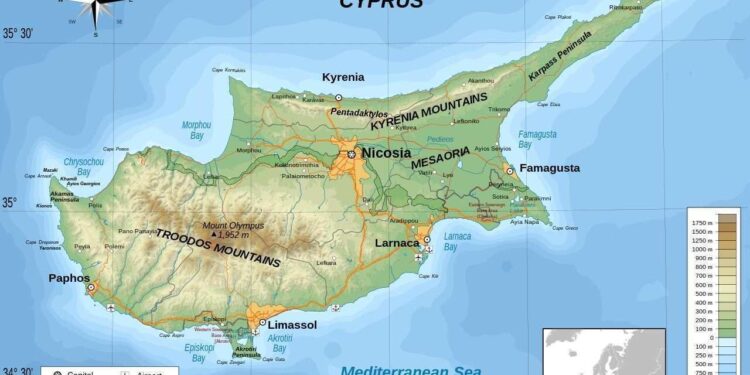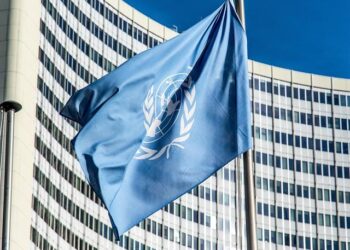Nicosia – Decades-old property disputes continue to cloud efforts to resolve the long-standing Cyprus conflict, as negotiations between Greek Cypriot and Turkish Cypriot leaders remain stalled. Despite numerous rounds of talks brokered by international mediators, the contentious issue of property rights-entwined with historical grievances and population displacements-has emerged as one of the key obstacles obstructing a comprehensive peace agreement on the divided island. With time running short and political will waning, the unresolved property claims pose a formidable challenge to the fragile peace process, according to sources close to the negotiations.
Property disputes remain key obstacle in Cyprus peace negotiations
The ongoing Cyprus peace talks continue to falter largely due to unresolved property disputes rooted in the island’s turbulent history. Decades after the 1974 conflict, thousands of displaced Greek Cypriots still seek restitution or compensation for properties lost in the northern region, now controlled by the Turkish Cypriot administration. Efforts to reconcile these claims have met with minimal progress, as both communities hold firm to divergent narratives and legal frameworks regarding ownership rights.
Key challenges complicating the property issue include:
- Legal inconsistencies: Differing laws governing land ownership in the north and south create a maze of conflicting claims.
- Political sensitivities: Any resolution is deeply tied to the broader status of sovereignty and political recognition.
- Compensation vs. restitution: Debates remain over whether displaced owners should receive financial compensation or physical return of lands.
| Stakeholder | Main Concern | Position |
|---|---|---|
| Greek Cypriots | Property restitution or fair compensation | Strong insistence on rights restoration |
| Turkish Cypriots | Recognition of current control and stability | Emphasis on political equality and safeguards |
| International mediators | Facilitating fair, workable solutions | Encouraging compromise and dialogue |
Impact of unresolved property claims on community trust and reconciliation
The continuation of unresolved property disputes has created a deep fissure in community trust between the Greek Cypriot and Turkish Cypriot populations. For decades, thousands remain displaced or unable to reclaim their ancestral homes, with legal battles dragging on and political compromises stalled. This persistent impasse not only exacerbates feelings of injustice on both sides but also fuels skepticism towards peace negotiations, undermining efforts to build a shared future. Residents voice concerns that without fair and transparent resolution mechanisms, the social fabric remains frayed, and grassroots reconciliation becomes increasingly elusive.
Key challenges contributing to mistrust include:
- Ambiguity over rightful ownership due to population shifts since 1974
- Perceived inequities in compensation and restitution policies
- Political reluctance to address sensitive property rights amidst broader territorial disputes
These unresolved issues ripple beyond legal complexities, affecting community interactions and dialogue. Social cohesion remains fragile, as individuals feel disconnected from any meaningful resolution process. Without addressing these core grievances, peace architects risk perpetuating a cycle where renewed talks falter and communal reconciliation is deferred indefinitely.
| Impact Area | Effect |
|---|---|
| Community Trust | Erosion of confidence in political leadership |
| Reconciliation Initiatives | Reduced participation in bi-communal activities |
| Economic Stability | Stalled property development and investment |
| Legal Environment | Prolonged litigation and uncertainty |
Experts urge comprehensive legal framework to address compensation and restitution
Legal experts and international mediators emphasize that without a clear, comprehensive framework addressing compensation and restitution, the property dispute will continue to impede progress in the Cyprus peace negotiations. They argue that any resolution must balance the rights of displaced persons with current occupants, while establishing mechanisms that are transparent, fair, and adaptable to the island’s divided realities. This framework would need to consider multiple factors:
- Verification of property claims, ensuring the authenticity and legality of ownership documents.
- Compensation schemes for those who lost access to their properties due to the conflict.
- Restitution options allowing for return or exchange where feasible.
- Legal recourse and dispute resolution accessible to all affected parties.
To illustrate the complexity, experts have proposed a simplified model assessing key compensation categories across regions:
| Category | Estimated Affected Persons | Compensation Type | Implementation Priority |
|---|---|---|---|
| Displaced Original Owners | 60,000+ | Monetary & Restitution Options | High |
| Current Occupants | 25,000 | Legal Guarantees & Relocation Support | Medium |
| Abandoned Properties | N/A | State Stewardship & Compensation Fund | Low |
Final Thoughts
As the Cyprus peace process remains stalled, unresolved property disputes continue to cast a long shadow over efforts to achieve a lasting settlement. Despite ongoing diplomatic initiatives, the deeply entrenched disagreements over land ownership reflect the broader complexities that have long challenged reunification talks. Without addressing these critical issues, prospects for a breakthrough in Cyprus remain uncertain, underscoring the need for renewed commitment from all parties involved.
















